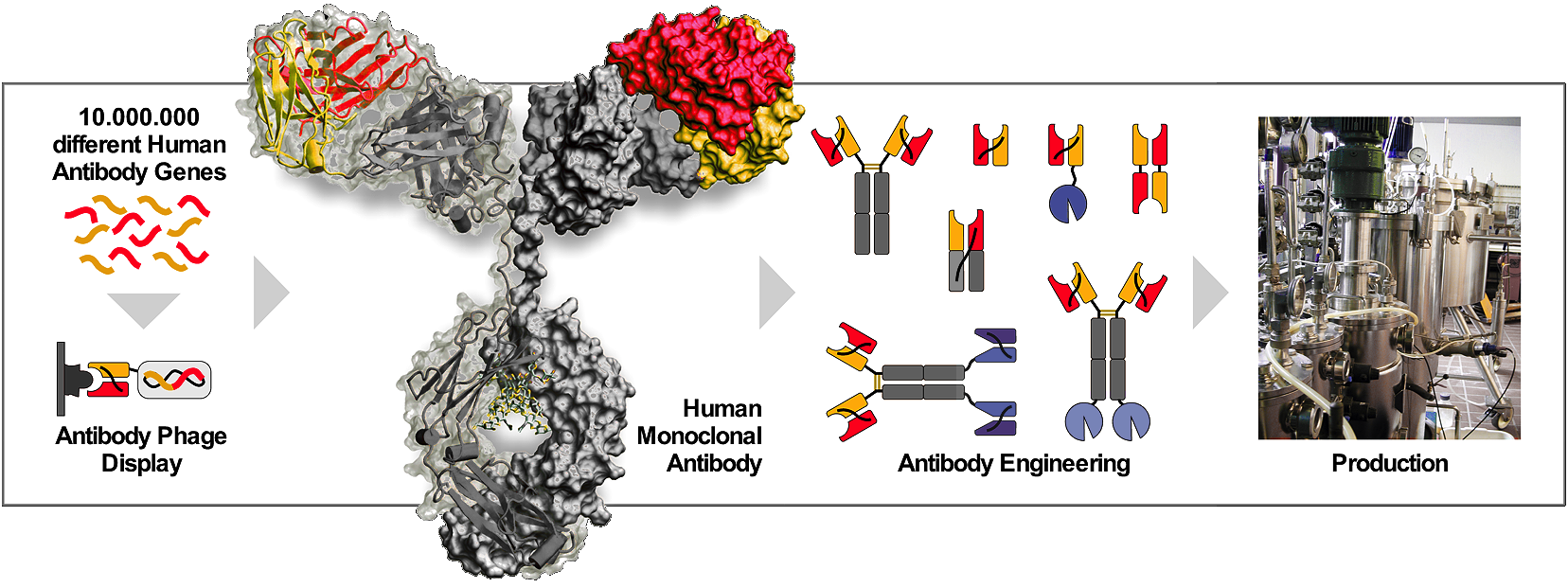
Antibody Engineering for Life
After developing key methods to generate new antibodies, we continue to generate and refine human monoclonal antibodies both by adding novel functions allowing new therapeutic paradigms and developing high-throughput in vitro antibody generation to substitute animal experiments or generate new human antibodies to fight infectious pathogens, cancer and autoimmune diseases.
We partner with academia, biotech and pharma in the generation of new drugs against cancer, autoimmune diseases and infections using our antibody phage display systems, including comprehensive naïve functional human antibody gene libraries covering the world's antibody repertoire.
The control of biochemical milieu during the in vitro selection step can be employed to predetermine antibody properties at the very moment of selection, e.g. to avoid cross reactivity or generate compatible sandwich pairs. Engineering of antibodies for novel applications like intracellular protein knockdowns or allosteric switches for affinity modulation complement our human antibody generation pipelines.
Our 30+ years of experience with phage display was further employed to create creative new methods for antigen and biomarker discovery, e.g. ORFeome and Metaproteome display.
Phage display further allows for in vitro evolution to fine tune various biochemical properties, like affinity, specificity or stability of proteins, or to adapt antibody properties to various applications, like biosensors or molecular machines.
Two antibodies we made by phage display have already reached clinical evaluation.
Past or ongoing projects cover the following major topics, among others:
This is complemented by the use of our technologies for non-antibody prorteins. In particular, phage display is a powerful tool for epitope mapping, biomarker discovery or in vitro evolution, e.g.:
This wide spectum of basic and applied reserach topics yielded a number of technology solutions and antibodies for various successful applications - from catalog research antibodies and diagnostic kits to clinical applications against cancer or infectious diseases (more info).
Successful applications: check our Newsblog on Technology Transfer
CORAT: fighting COVID-19 with human antibodies against SARS-CoV-2
Crystal structure of a phage display-derived antibody against schizophyllan in complex with laminarihexaose (6EV2)
Sung, K.H., Josewski, J., Dübel, S., Blankenfeldt, W. & Rau, U. (2018) Structural insights into antigen recognition of an anti-beta-(1,6)-beta-(1,3)-D-glucan antibody. Scientific Reports 8,13652